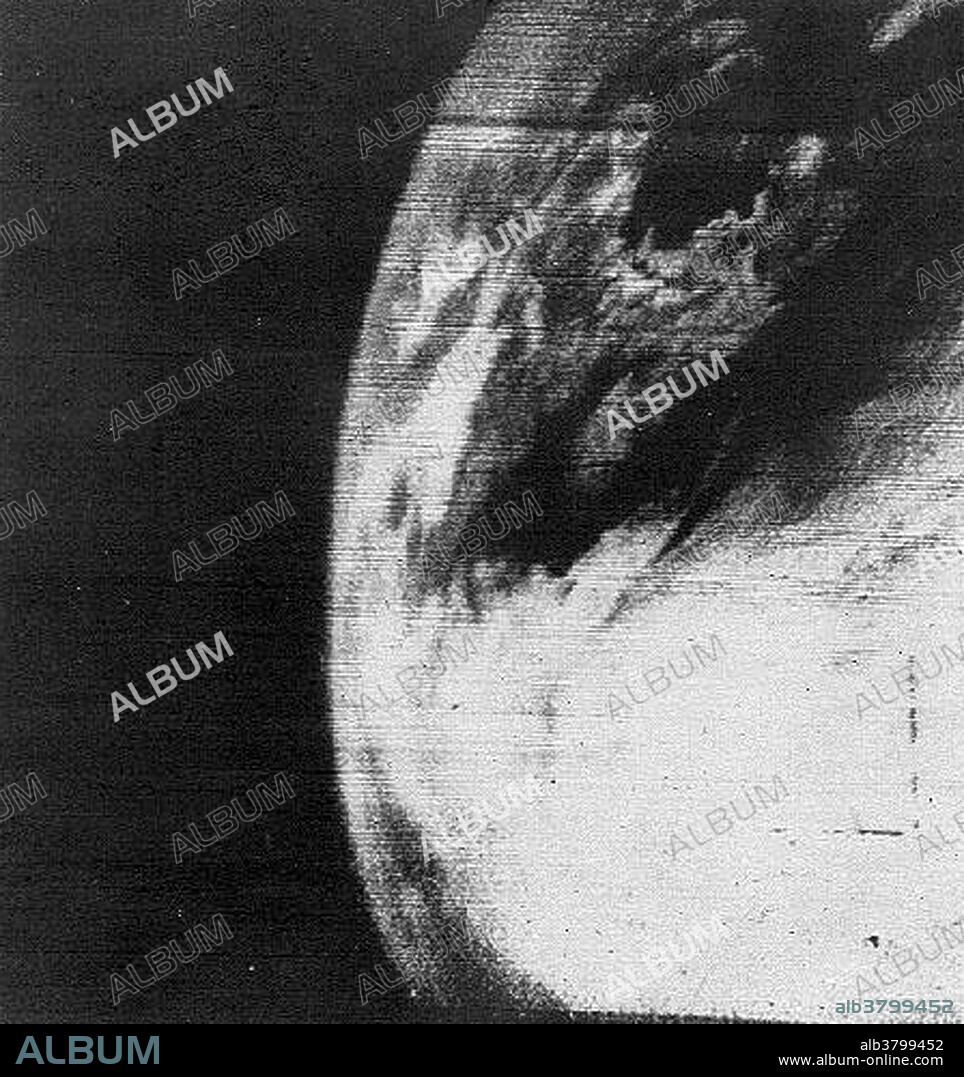alb3799452
First TV Picture of Earth from TIROS I, 1960

|
Añadir a otro lightbox |
|
Añadir a otro lightbox |



¿Ya tienes cuenta? Iniciar sesión
¿No tienes cuenta? Regístrate
Compra esta imagen.
Selecciona el uso:

Título:
First TV Picture of Earth from TIROS I, 1960
Descripción:
Ver traducción automática
Image taken on April 1, 1960 by TIROS 1. This was the first television picture of Earth from space. TIROS I was the first successful low-Earth orbital weather satellite, and the first of a series of Television Infrared Observation Satellites. The TIROS-1 spacecraft was launched by NASA and partners on April 1, 1960, from Cape Canaveral, Florida, in the United States. The TIROS Program's first priority was the development of a meteorological satellite information system. Weather forecasting was deemed the most promising application of space-based observations. The satellite, which weighed 270 pounds, was specifically designed to test experimental television techniques that would lead to a worldwide meteorological information system. The spacecraft carried two television cameras, a magnetic tape recorder, timer systems, transmitters and a power supply. Early photographs provided new information on cloud systems, including spiral formations associated with large storms, immediately proving their value to meteorologists.
Crédito:
Album / NASA/Science Source
Autorizaciones:
Modelo: No - Propiedad: No
¿Preguntas relacionadas con los derechos?
¿Preguntas relacionadas con los derechos?
Tamaño imagen:
3600 x 3825 px | 39.4 MB
Tamaño impresión:
30.5 x 32.4 cm | 12.0 x 12.7 in (300 dpi)
Palabras clave:
1960 • ACONTECIMIENTO • AEROESPACIAL • AMERICA • AMERICANO • AÑOS 60 • AÑOS SESENTA • BLANCO Y NEGRO • CARRERA ESPACIAL • CIENCIA • CLIMA • ESTADOS UNIDOS DE AMERICA • ESTADOS UNIDOS • FAMOSA • FAMOSO • HISTORIA • HISTORICO • IMPORTANTE • INVESTIGACION • METEOROLOGÍA • METEOROLÓGICO • METEREOLOGIA • METEREOLÓGICOS • NASA • PLANETA TIERRA • PROGRAMA ESPACIAL • S. XX • SIGLO XX • TECNOLOGÍA • TECNOLÓGICA • TELEVISION (MEDIO) • TELEVISION • TV • VIAJE ESPACIAL
 Pinterest
Pinterest Twitter
Twitter Facebook
Facebook Copiar enlace
Copiar enlace Email
Email
